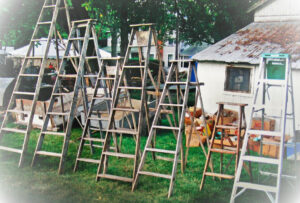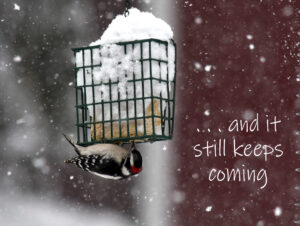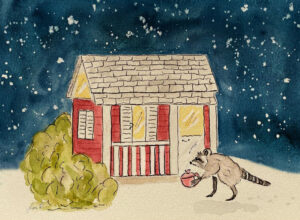We blew out all the stops to celebrate the husband’s birthday with a last-minute meet-up at McDonald’s. Do we know how to party or what?
Three carloads. Five adults. Six kids, all girls.
If we squeeze six into the bench against the wall that spans two tables, and grab extra chairs, we can make it work.
Kids squirrel around as adults take food orders. Somebody shouts there are discounts on the phone app.
Phones come out, kids finish shouting their orders and the birthday boy says he’ll take a burger, fries and a frozen coffee caramel-laced drink, which the menu board says has 590 calories. I suggest he share the drink if he wants to see another birthday.
Orders are complete and the phone apps won’t link to the store.
Someone approaches a worker. She disappears, reappears, disappears, reappears and the connection issue is eventually fixed.
After a very lengthy wait, the food arrives. They got the french fries and iced coffee right, but everything else is wrong. Chaos ensues at the tables. Fries are involved. And ketchup.
The husband passes his frappe down the line to me. I take a slurp and a 6-year-old across the table wants a taste. She likes it and refuses to relinquish it. I rat her out to her mother, who says, “Oh, caffeine doesn’t bother her,” and goes back to a conversation with her sister.
Well, I’d like it to bother me, but it’s gone now.
Someone says the recently remodeled restrooms are really cool. Six girls peel off to check it out. We are in the farthest corner of the store but can see the door to the ladies room swing open and hear someone scream, “WHOA!”
They don’t come back and don’t come back. I check on them and the restroom is, well, a nothing burger. They return to the table.
A hush falls as Grandpa opens his cards. There’s not a Hallmark in the bunch.
The last card he opens is from the one who finished off his frappe, the kindergartener with round cheeks, big eyes, legs swinging under the table, the one who screamed “WHOA!” opening the door to the ladies room.
The group is stunned to see money in her card. It is a green bill rolled tight and taped next to a self-portrait of her and Grandpa.
No one wants to ask the denomination of the greenback, and it would be rude to rip the bill off the card.
We wonder where she got the idea. Maybe she got it from her aunts and uncles who give nephews and nieces a quarter for every year old they are.
Thank goodness she didn’t try to give grandpa a bill for every year old he is.
She sits quietly, either uncomfortable with the attention or still thinking about that hand dryer with the roar of a jet engine in the ladies room.
The silence passes, everyone gathers their things and their people and says goodbye.
When we get home, Grandpa carefully unrolls the bill. It is a one. One to be remembered.












